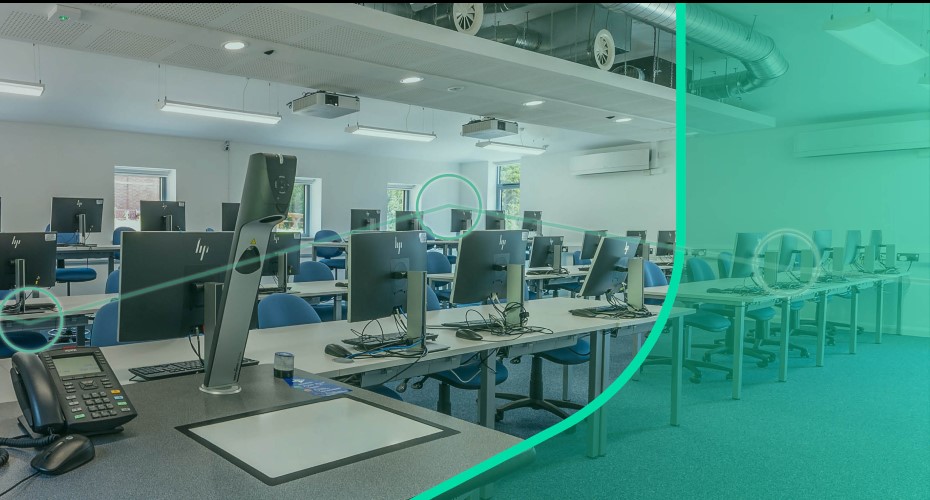
Experts at the University of Exeter’s new Centre for Computational Social Science are using statistics AI, big data and machine learning to better understand our world.
Experts in C2S2 combine their substantive knowledge in the fields of politics, sociology, and criminology with statistical techniques, Natural Language Processing, spatial and geographical analysis, and many other data science methods to analyse large, unstructured, and “noisy” data.
This gives them novel insights into a wide range of social problems and phenomena; including online extremism, disinformation, education attainment, political communications, voting behaviours and climate issues.
The Centre for Computational Social Science was previously one of the Q-Step Centres established as part of a nationwide £19.5 million Nuffield-funded programme to address the nationwide shortage of numerically-skilled social science graduates. The evolution of the Q-Step centre to the Centre for Computational Social Science captures the advancements in computer-enabled research methods and digital data sources that have occurred since.
The various courses offered by C2S2 also prepare students with the data science skills necessary to in a data-driven world to excel in a wide variety of jobs across different industries, including research organisation such as YouGov and Ipsos Mori, data journalism, policy units, law enforcement, and others.
is led by Dr Lewys Brace and Professor Katharine Boyd.
Dr Brace said: “Through this centre we will teach cutting edge computational science methods to enable individuals to develop novel insights into the contemporary world. Our diverse group of academics are experts in big data research combined with other research, including online extremism, AI, social mobility, equality in politics and political communication.”
Professor Boyd said: “Students at the Centre for Computational Social Science will develop in-depth knowledge in sociology, criminology, and politics and international relations combined with the technical skills and understanding necessary to extract insights and information from diverse data.
“Our degrees are designed to combine the use of cutting-edge quantitative and computational methods with the study of substantive issues affecting society. Students will learn these quantitative and computational skills through innovative and hands-on teaching.”
There are as well as data science training for staff and students across other parts of the university.
Undergraduate courses include the BSc Politics and International Relations, BSc Criminology, BSc Crime and Data Science, BSc Sociology, and BSc Social Data Science. These are ideal routes into developing data skills for students without Maths A-Level.
Postgraduate courses include , where students learn to address real-world challenges through the evaluation of public policy evidence-based decision making, and the new , which trains people to both analyse security threats using data science methods and understanding the ever-evolving nature of security threats in relation to emerging technologies.
The Centre will also run (PSDS) courses for students studying other courses who would like to gain experience in using data as part of their degree. Along with the recent expansion of the computer science department, this enables many students to choose to add data skills to their portfolio, regardless of previous experience.
C2S2 is based in the Clayden Building on the University of Exeter’s Streatham campus and boasts a state-of-the-art Computational Social Science Lab.
